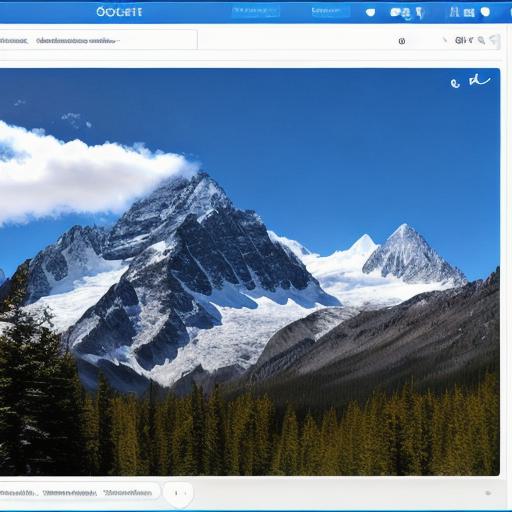Marketing has come a long way since the days of traditional advertising, and with the rise of social media and digital platforms, it’s now more important than ever to have a strong online presence. But with so many tools and tactics available, it can be overwhelming to know where to start. That’s why we’ve compiled this ultimate guide to the best marketing tools for your business, covering everything from SEO to social media management.
1. Search Engine Optimization (SEO)
Let’s start with the basics: SEO is the process of optimizing your website and its content to rank higher in search engine results pages (SERPs). This is crucial for driving traffic to your site, as users are more likely to click on a link that appears at the top of the SERP. Here are some tips for improving your SEO:
- Conduct keyword research to identify the phrases and terms that your target audience is searching for.
- Optimize your website’s title tags, meta descriptions, and header tags with relevant keywords.
- Use internal linking to direct users to other pages on your site that are relevant to their search query.
- Ensure that your website is mobile-friendly and has fast loading times.
- Build high-quality backlinks from other authoritative websites in your industry.
1. Social Media Management
Social media is a powerful tool for reaching and engaging with your target audience, but with so many platforms to choose from, it can be hard to know which ones are right for your business. Here are some of the most popular social media platforms and how you can use them to your advantage:
- Facebook: With over 2.8 billion monthly active users, Facebook is a must-have platform for any business looking to reach a large audience. Use Facebook to share updates about your products or services, run contests and promotions, and engage with your followers through comments and messaging.
- Instagram: Instagram is all about visual content, making it a great platform for businesses in creative industries such as fashion, beauty, and hospitality. Share high-quality photos and videos of your products, behind the scenes, or events to capture your audience’s attention.
- Twitter: Twitter is a great platform for real-time updates and customer service. Use Twitter to respond to customer inquiries and complaints, share news and updates about your business, and participate in industry conversations through hashtags.
- LinkedIn: LinkedIn is a professional networking platform that’s perfect for businesses looking to connect with other businesses and professionals. Share thought leadership content, engage with your followers through comments, and join relevant groups to expand your network.
A PLACE FOR A PICTURE #21. Email Marketing
Email marketing is a highly effective way to stay in touch with your customers and keep them engaged with your brand. Here are some tips for creating an email marketing campaign that will drive results:
- Build an email list by offering incentives such as discounts or exclusive content in exchange for sign-ups.
- Segment your email list based on demographics, purchase history, or engagement levels to send targeted messages that are relevant to each group.
- Use personalization techniques such as including the recipient’s name or past purchases in the email to make it feel more tailored.
- Create a clear call-to-action (CTA) that encourages the recipient to take action, whether that’s making a purchase, signing up for a newsletter, or attending an event.
- Test different subject lines, content, and CTAs to see what works best and optimize your campaign accordingly.
1. Content Marketing
Content marketing is the process of creating and sharing valuable, relevant, and consistent content to attract and retain a clearly defined audience, and ultimately drive profitable customer action. Here are some tips for creating an effective content marketing strategy:
- Define your target audience and their pain points or challenges. Create content that addresses these issues and provides value to your audience.
- Use a mix of formats such as blog posts, videos, infographics, and social media posts to keep your content fresh and engaging.
- Optimize your content for SEO by including relevant keywords, using headings and subheadings, and including internal and external links.
- Promote your content through social media, email marketing, and other channels to reach a wider audience.
- Measure the success of your content by tracking metrics such as pageviews, engagement rates, and conversions. Use this data to optimize your strategy and improve results over time.
1. Influencer Marketing
Influencer marketing is a powerful tool for reaching new audiences and building brand awareness. Here are some tips for working with influencers:
- Identify influencers in your industry who have a large and engaged following, and whose values align with your brand.
- Reach out to influencers and pitch them a collaboration that benefits both parties. This could be a sponsored post, product review, or giveaway.
- Provide influencers with clear guidelines for creating content that accurately represents your brand and message.
- Track the success of your influencer marketing campaign by measuring metrics such as reach, engagement rates, and conversions. Use this data to optimize your strategy and improve results over time.
1. Affiliate Marketing
Affiliate marketing is a type of performance-based marketing where you reward affiliates for each customer they refer to your business. Here are some tips for setting up an affiliate program:
- Choose an affiliate network that aligns with your business values and has a large pool of potential affiliates.
- Provide clear guidelines for affiliates on how to promote your products or services, including approved messaging and creative assets.

- Set realistic commission rates that reflect the value of each affiliate’s referrals.
- Track affiliate performance using analytics tools and provide regular feedback and support to help them improve their results.
1. Video Marketing
Video marketing is a highly engaging and effective way to reach your target audience and showcase your products or services. Here are some tips for creating successful video content:
- Identify the type of videos that will be most effective for your business, such as product demos, explainer videos, or customer testimonials.
- Keep your videos short and to the point, ideally under 2 minutes.
- Use high-quality equipment and lighting to ensure that your videos look professional.
- Optimize your videos for SEO by including relevant keywords in the title, description, and tags.
- Promote your videos through social media, email marketing, and other channels to reach a wider audience.
1. Virtual Events
Virtual events are becoming increasingly popular as a way to bring people together online, whether it’s for business networking, product launches, or educational purposes. Here are some tips for hosting a successful virtual event:
- Define the purpose and goals of your event, and create a clear agenda that includes presentations, discussions, and interactive elements.
- Choose a virtual event platform that allows you to host the event online, and provides features such as live streaming, chat functionality, and registration.
- Promote your event through email marketing, social media, and other channels to ensure that people know about it and can register to attend.
- During the event, engage with attendees through live polls, Q&A sessions, and other interactive elements.
- Follow up with attendees after the event to thank them for attending and gather feedback on how to improve future events.
1. Analytics and Reporting
Finally, it’s important to track and analyze your marketing efforts to see what’s working and what’s not. Here are some tools and metrics that you should be tracking:
- Web analytics tools such as Google Analytics to track website traffic, conversion rates, and other key metrics.
- Social media analytics tools to track engagement rates, follower growth, and other metrics for each platform.
- Email marketing software to track open and click-through rates, and conversion rates from email campaigns.
- Conversion rate optimization tools to optimize your website and landing pages for maximum conversions.
- A/B testing tools to test different versions of your website, emails, and other content to see what works best.
By tracking these metrics and using data-driven insights to optimize your marketing efforts, you can improve your results over time and achieve your business goals.




